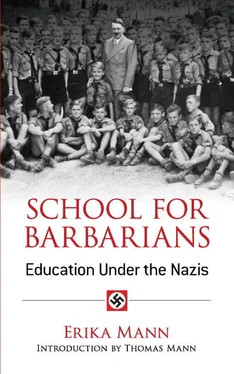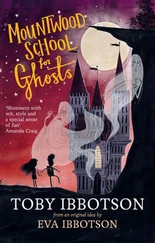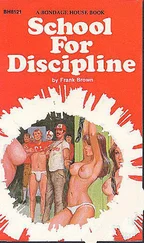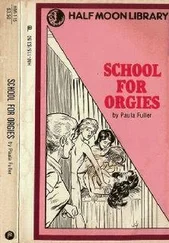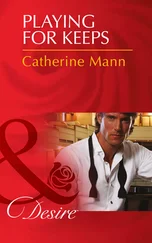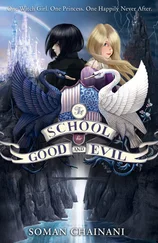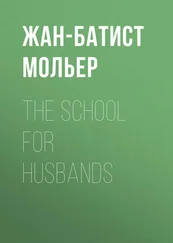A certain Herr Peter Osten, who tells of past experiences, “grave and gay,” is a specialist on this theme. He writes: “We were just a small troop of Hitler boys and helped prepare placards and newspaper propaganda. Angriffe and Signale [Nazi papers] were folded from early morning to late at night. Shortly after one o’clock we had finally completed our task. But since the greater number of us could not very well go home so late, as our parents thought we were out with some harmless bunch of Boy Scouts, we decided just to go on with the propaganda. We wanted to paint placards. It was an excellent time for it. Only one thing was missing: paint and two brushes. Suddenly, somehow, these too appeared. Lulu, one of our best and most active members, had ‘organized’ them from somewhere. Then we explored the neighborhood. The placard-painters followed and behind them, as further protection against the police, a few ‘harmless passers-by.’”
A little earlier in the same text, describing an enrollment expedition in cars which a large number of “Hitler Youths” made throughout the country, he says: “At first everything took its normal course and some of us were a little disappointed that nothing at all new was going to happen. A few communistic day-laborers passed us and defiantly cried their greeting — Red Front — to us. Normally, we would have laughed at them. But since we had decided to have an adventure, they became our victims. The car stopped and a few of us finished the work promptly and neatly.”
That is the “period of struggle,” even when the Nazis tell the story: lying to parents, making fools of officials, stealing tools — and, when they met “some communistic day-laborers” (some workmen, who dared express disapproval of young men who did not work but went out on hoodlum enrollment excursions), since they had decided “to have some adventure,” the workmen “became victims,” and were “finished promptly and neatly.”
Peter Osten, story-teller, tells another bit of the lives of the “illegal placarders.”
“…Hans pulled his cap over his face, pressed the portfolio tightly under his arm, and went off with mighty strides toward the place appointed. A blue coffee-can stuck out of his right pocket, which gave him the appearance of a young worker. With mad haste, Gerhardt rushed to the scene on his bicycle. They greeted each other joyfully, and both agreed that they really had succeded in disguising themselves. They now proceeded on their way together and finally rejoined the others behind a colony of gardens on the outskirts of the city. All of them almost burst into loud laughter. In the center of the group was a girl flirting outrageously with Werner, the trumpeter. ‘Just for practice,’ she said; or rather, he said, for it was no other than Traugott, whose smooth skin fitted him best for the part…. ‘Silence!’ commanded Gerhardt, ‘Now we will first of all take inventory.’ Two large new pots of paint, two brand-new brushes and some glue, made their appearance. ‘You have my talent for organization to thank for the paint and the brushes,’ Werner announced proudly. Soon everything was ready. ‘If one of us really is caught by the police, he is on no account to give any information concerning the others,’ said Gerhardt, leader of the group ( Kameradschaftsführer ), as a last warning. Two boys on bicycles started off, and investigated the neighborhood, so as to save the group any unpleasant surprise. In front of the boys who were to do the actual placarding, a pair of lovers ran to and fro. In their little valise were all the tools…. Now the painters put on gloves… and chose a nice black fence as their first field of activity. The lovers did not stand about inactive, but took hold of one of the paint-pots and began to smear the asphalt shamelessly….”
When the police finally did come, the childish gangsters had no difficulty in heading them off: “And unsuspectingly the police proceeded on their search for the criminals who disturbed the peace of the night. ‘Luck, that time,’ said Hans. ‘Those make-believe lovers were a good idea.’ At daybreak the boys went home, still talking excitedly.”
This noble tale has all the decoration of the “time of battle”: we have the sentinels, the stolen tools, the trick played on the police by Traugott’s masquerade. This last, the story of the boy with the smooth skin, dressed as a girl, flirting “outrageously with Werner,” is a piquant added bit that is not untypical. Captain Roehm was not the only man of his type among the Nazi ranks, and Baldur von Schirach’s organization is still faithful to Roehm’s tradition.
Schirach himself is the editor of the German Girl , a magazine which gives him an opportunity to interest himself, in a brotherly manner and with great sensitivity, in such subjects as “the spiritual position of woman in Germany,” and “her great mission,” as well as in “all specifically feminine aims.” The Hitler Youth, in contrast, “is a corporation emphatically masculine in style of uniform; manly, too, as regards its unconditional point of view: brutality, and harshness of outlook.” The word “brutality” is used here, it will be noted, in a completely laudatory sense, giving all desirability to the quality. There is now a whole group of words which are used with a derogatory meaning everywhere else in the world, but which the Nazis have invested with favorable meanings: words like “fanaticism,” “harshness,” and others, “merciless,” “blind,” and even “barbarous.”
The songs, choruses and playlets of the Nazi youth are barbarous, in the sense of the word outside Germany. Their texts are to be found in the magazines and in any number of special publications recommended, and sometimes distributed by the Reichsjugendleitung and its subdivisions. In one of these booklets, you will find the song “Mögen sie nur kommen” (Let them come!):
Oh Herr, schick uns den Moses wieder,
Auf dass er seine Glaubensbrüder
Heimführe ins gelobte Land.
Lass auch das Meer sich wieder teilen
Wohl in zwei hohe Wassersäulen,
Feststehen wie eine Felsenwand.
Wenn dann das Judenpack darinne
Wohl in der festen Wasserrinne
Dann mach, o Herr, die Klappe zu.
Und alle Völker haben Ruh.
Send Moses to us, Lord, again,
That he may lead his fellow-men
Once more into the Promised Land.
Let the Red Sea on either hand
Be into two great pillars made
Solid as a barricade.
And when the packs of Jews begin
To file between them and run in,
Then, Lord, fill up that gap again:
Peace will descend upon all men.
Another songbook, Trum Trum — Songs for the Jungvolk, is, as its title shows, meant for boys between ten and fourteen. But the songs go like this:
Ihr Sturmsoldaten, jung und alt, nehmt eure Waff en in die Hand,
Denn Juden hausen fürchterlich im deutschen Vaterland.
You Storm-troopers, young and old, take your weapons in your hand,
For the Jews have launched confusion in the German fatherland.
Or else:
Hundertzehn Patronen umgehängt
Scharf geladen das Gewehr,
Und die Handgranaten in der Faust,
Bolschewist, nun komm mal her!
A hundred bullets and ten to our aid,
A loaded rifle does the trick,
And in our fist a hand-grenade —
Come on then, you Bolshevik!
They are all songs of war; these songs, filled with hatred, are taught to the children; they are characterized by that emotional sloppiness by which we recognize Hitler and his followers — a combination of brutality and all the clichés of romanticism.
Читать дальше
